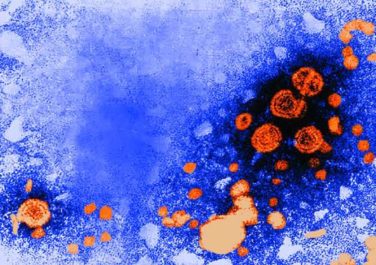At some point in medical school, you might have come across the psychological theory of depressive realism , developed by Lauren Alloy, Ph.D., and Lyn Yvonne Abramson, Ph.D. The theory challenges traditional views of depression and suggests that an individual can become so entrenched in the reality of his status that it becomes overwhelmingly sad-depressive. This theory overturns the traditional view that nondepressed individuals are normal.
What happens when a large mass of individuals stops the delusion of their safe reality and dares to face, head on, their actual reality? Denying themselves rose-colored glasses? The answer is the birth of an entire community of people who dare to change the structure that ensures their depression is real. The product of this new birth are warriors, brave, intellectual, fearless activists who stand with mirrors to our societal made-up face with one hand, while snatching away the rose-tinted glasses with the other. Activists have made some uncomfortable because of the seed planted in the belly of their consciousness: an undeniable urge to do something. It makes us uncomfortable because we know that a national tragedy of this magnitude makes the need for psychiatric and psychological services undeniable and begs us each to answer the question: “What am I doing?”
As the current president for the St. Louis Association of Black Psychologists ( STL ABPsi ), I have seen face-to-face the devastation of what happens to a region plagued by depression, trauma, and generalized anxiety for 100 days with little to no focus on mental health. Regardless of your opinion of what occurred between Michael “Mike Mike” Brown and Officer Darren Wilson of Ferguson, Mo., what we each should have an opinion of is the need to address the mental health of a community that has been forever changed following the interaction of those two individuals.
As of this writing, we are awaiting the results of investigations by the U.S. Department of Justice and St. Louis County, and Gov. Jay Nixon has issued an executive order essentially saying that any unrest that might occur after those announcements will be met with the deployment of numerous law enforcement bodies in the region, including the National Guard. However, as mental health providers, we must not wait for what happens next. We must be concerned right now that children are having nightmares; some parents are so hypervigilant that any dropped objects are striking a startle response; and many of our young boys and girls are walking in fear of seeing militarized police officers jump out of bushes.
When STL ABPsi entered the Canfield Apartment Complex, now referred to (by residents) as “ground zero,” we were unsure of what to expect. We simply understood that a community was grieving, and entire families were devastated by witnessing one of their community members lying in the street, face down, in his own blood, littered with bullets for more than 4 hours. Detailed visions of what they saw were at the start of every conversation for weeks and months to come.
As we provided crisis intervention services, we listened to parents with concern about their potty-trained children wetting the bed. Fathers disclosed feeling a sense of numbness. Mothers discussed their frustration with poor concentration, their own nightmares, and numbness. This might sound like a description of a war zone in a third-world country, but I am sad to report these are the symptoms suffered by American citizens not only in Ferguson but in other parts of the St. Louis metropolitan area.
It is my hope that behavioral health providers across the country also will be moved to do something to address the pain that plagues our region. Psychiatrists nationwide can choose to stand on the right side of history by supporting a local organization, volunteering medical services, or making a donation to organizations focused on supporting the mental health needs of St. Louis. It is my hope that the profession I have chosen to make my career is not left out of the recorded history of this historic moment. While many will agree, the time for justice is always right now. I urge my psychiatric community to boldly stand in our truth, that the movement for healing our children and families is certainly right now. What will you do?
Dr. Robinson is a licensed clinical psychologist in private practice in St. Louis.




